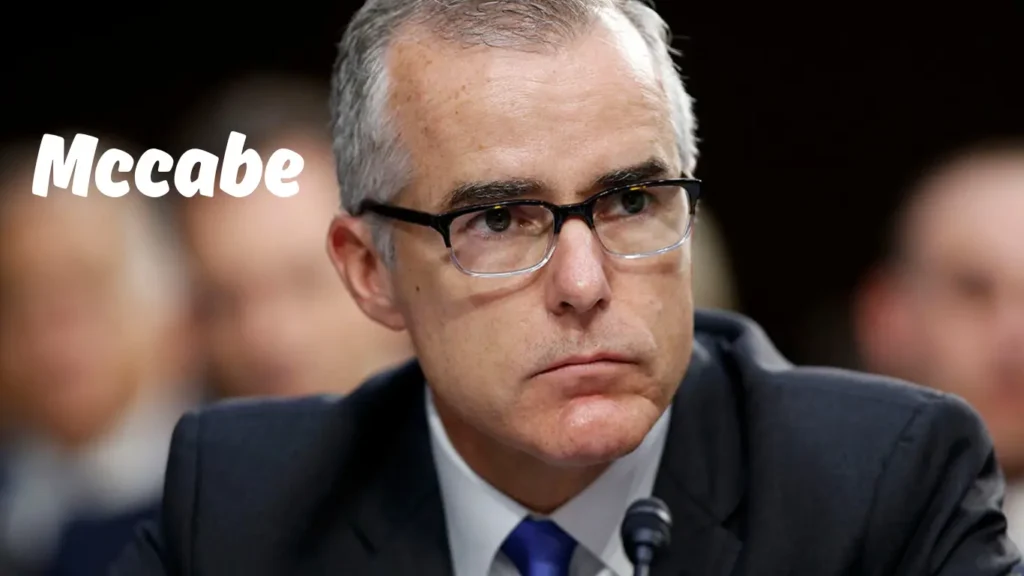Ever heard the name “McCabe” and wondered — who is this person everyone keeps talking about? Whether it’s politics, law enforcement, or media buzz, the name McCabe has certainly left its mark.
If you’re searching for McCabe, chances are you’re looking for one of two things: either you’re curious about a public figure whose name keeps showing up in the headlines, or you’re seeking clarity on their role, reputation, and relevance in current events. This article delivers exactly that.
We’ll unpack who McCabe is, highlight their career journey, legacy, and controversies, and bring you up to speed on the latest news — all in plain, human language.
Who Is McCabe?
Let’s clear the fog.
When most people refer to “McCabe” in recent history, they’re likely talking about Andrew McCabe, the former Deputy Director of the FBI. But McCabe is a name that could apply to more than one person in the public sphere, including athletes, authors, or academics.
For this article, we’ll focus on Andrew McCabe, given his prominent role in American law enforcement and the political firestorm that surrounded his tenure and resignation.
A Quick Bio: Andrew McCabe at a Glance
- Full Name: Andrew George McCabe
- Born: March 18, 1968, in Hartford, Connecticut
- Education: B.A. from Duke University, J.D. from Washington University in St. Louis
- Profession: Former FBI Agent, Lawyer, Commentator
- Known For: Serving as Deputy Director of the FBI and briefly as Acting Director after James Comey’s firing.
Climbing the Ranks: McCabe’s FBI Career
Imagine trying to climb a mountain during a blizzard. That’s a pretty good metaphor for McCabe’s FBI career — he rose steadily through the ranks, but turbulence was constant.
Early Days
McCabe joined the FBI in 1996 and specialized in organized crime and counterterrorism. His early assignments included high-stakes investigations into Russian organized crime and post-9/11 terrorism threats.
Leadership Role
By 2016, he was named Deputy Director of the FBI, the second-highest-ranking official in the bureau. When then-FBI Director James Comey was fired by President Donald Trump in May 2017, McCabe stepped in as Acting Director.
This put him smack in the middle of one of the most politically charged periods in FBI history.
The Controversy That Defined His Legacy
Let’s be real: no legacy is complete without a little controversy — and McCabe’s story is no exception.
The Trump-Russia Investigation
McCabe oversaw critical parts of the investigation into Russian interference in the 2016 presidential election — a move that put him at odds with the Trump administration. His involvement led to relentless public attacks from the President, who accused McCabe of political bias.
The Inspector General’s Report
In 2018, the DOJ Inspector General released a report alleging that McCabe “lacked candor” (a serious charge within the FBI) regarding media leaks about the Clinton Foundation investigation. This resulted in McCabe being fired just 26 hours before his scheduled retirement, jeopardizing his federal pension.
Was it politically motivated? McCabe — and many of his supporters — certainly think so.
Redemption & Lawsuit: A Legal Battle Won
McCabe didn’t go quietly.
In 2019, he sued the Department of Justice, arguing that his firing was retaliatory and unconstitutional. And in October 2021, the government settled the lawsuit, restoring his pension and clearing the record.
This wasn’t just a personal win — it was a symbolic moment about institutional integrity and due process.
Where Is McCabe Now?
After leaving the FBI, McCabe didn’t disappear. Instead, he:
- Became a CNN contributor, offering insight on law enforcement and national security issues
- Authored a memoir titled “The Threat”, reflecting on his FBI service and the dangers of political influence in law enforcement
- Speaks regularly at universities, panels, and media outlets on justice, law, and democracy
He’s shifted from behind-the-scenes investigations to being a public commentator and thought leader.
Why People Are Still Googling “McCabe” in 2025
Here’s the twist: the McCabe narrative isn’t over.
He remains a prominent figure in:
- Media debates on FBI reform and government transparency
- Legal commentary about the balance between national security and civil liberties
- Discussions on public service and the cost of whistleblowing or speaking truth to power
Whether you’re politically left or right, McCabe’s story offers an important case study in loyalty, leadership, and controversy in the digital age.
McCabe’s Broader Legacy
Think of McCabe as a mirror. His career reflects some of the biggest national tensions of the past decade: trust in law enforcement, the politicization of justice, and what it means to serve with integrity under pressure.
For many, he’s either:
✅ A principled official who stood up for justice
❌ Or a partisan actor who got in over his head
Either way, you can’t ignore his impact.
FAQs About McCabe
Was McCabe ever criminally charged?
No. Despite investigations, no criminal charges were filed against McCabe, and the DOJ later closed its probe.
Did McCabe work directly with James Comey?
Yes. He was Comey’s deputy and took over as Acting Director after Comey’s dismissal in 2017.
Is McCabe still in the news?
Yes. He continues to appear in media segments, writes op-eds, and is often cited in discussions about the FBI and political accountability.
Final Takeaway: Why McCabe’s Story Still Matters
If you’re navigating a world where truth, justice, and leadership often feel blurred, McCabe’s journey is worth studying. Whether you admire him or criticize him, his career sparks essential conversations about how government power is used — or misused.
So next time someone asks, “Who is McCabe?” — you’ll know the full story.
And maybe, just maybe, you’ll see a bit of your own workplace struggles in his tale of loyalty, ethics, and consequences.


